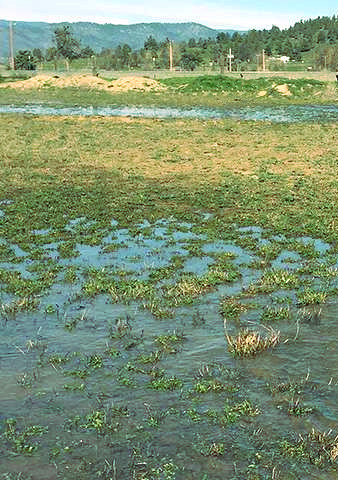Flood response uncovered
 Experts are looking at ways to manipulate plants to make them more flood-resistant.
Experts are looking at ways to manipulate plants to make them more flood-resistant.
A new study suggests enzymes that control a plant’s response to lower oxygen levels could be manipulated to make vital crops resistant to the impacts of flooding.
“Climate change is a major global issue, not least for its impact on food security. We hope these findings can help produce flood-tolerant crops to help mitigate the devasting social and economic impact of extreme weather events on food production,” says Dr Mark White, from the School of Chemistry at the University of Sydney.
Plants, including staple crops such as rice, wheat and barley, can survive temporary periods of flooding by activating energy pathways that don’t rely on air in response to the low oxygen conditions in water.
These responses are controlled by oxygen-sensing enzymes called the Plant Cysteine Oxidases (PCOs), which use oxygen to regulate the stability of proteins that control gene activity.
The research describes the molecular structures of the PCOs for the first time, identifying chemical features that are required for enzyme activity.
“The results provide a platform for future efforts to manipulate the enzyme function in an attempt to create flood-resistant crops that can mitigate the impact of extreme weather events,” Dr White said.
The new research, largely undertaken at the University of Oxford, has been published in the Proceedings of the National Academy of Sciences.







 Print
Print